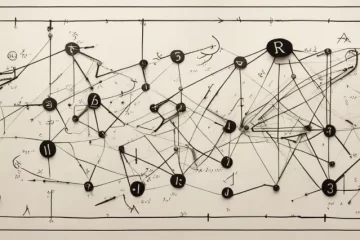Enhancing Decision-Making: Discover the Power of Noise

In a world filled with overwhelming amounts of information, decision-making has become an intricate dance between rationality and uncertainty. But what if we told you that noise, a concept often overlooked, could significantly impact our judgments? In his groundbreaking book “Noise,” acclaimed psychologist Daniel Kahneman explores the hidden forces that contribute to decision-making, unraveling the intricacies of unpredictable biases and random variations that often lead to inconsistent outcomes. Join us on a thought-provoking journey into the world of noise as we delve deeper into Kahneman’s groundbreaking research, seeking to understand how Noise influences our choices and how we can navigate this invisible force in our everyday lives.
What is Decision-making
Decision-making is the process of selecting the best course of action from various alternatives based on evaluation and consideration of different factors and potential outcomes. It involves gathering relevant information, assessing possible options, weighing pros and cons, and ultimately making a choice. Decision-making can be driven by rational analysis, intuition, personal values, or a combination of these factors. It is a fundamental cognitive process that individuals, groups, and organizations engage in daily to solve problems, set goals, allocate resources, and navigate various situations.
Why is Decision-making Important to Us
Decision-making is important to us for several reasons:
1. Achieving goals: Decision-making helps us make choices that align with our personal and professional goals. It allows us to evaluate alternatives and select the best course of action to move us closer to our desired outcomes.
2. Problem-solving: Decision-making enables us to solve problems and overcome challenges effectively. It helps us analyze the situation, identify possible solutions, and make informed decisions that address the issue at hand.
3. Efficiency and productivity: Making timely decisions increases efficiency and productivity. It reduces time wasted on indecisiveness or overthinking and allows us to take action promptly, leading to better outcomes and improved performance.
4. Personal growth and development: Decision-making provides an opportunity for personal growth and development. By making decisions, we learn from our successes and failures, gain experience and expertise, and develop valuable skills such as critical thinking, problem-solving, and emotional intelligence.
5. Control over life: Decision-making gives us a sense of control over our lives. It allows us to have a say in shaping our future, rather than being passive recipients of circumstances. Taking responsibility for our decisions empowers us to take charge of our actions and exert influence over our outcomes.
6. Adaptability and resilience: Decision-making helps us adapt to changing circumstances and make adjustments as needed. It equips us with the ability to assess and respond to new situations, making us more resilient and better equipped to handle unexpected challenges.
7. Decision-making in relationships: Making decisions is crucial for healthy relationships. It involves engaging in open communication, actively listening to others, and considering their perspectives. By involving others in the decision-making process, we foster trust, collaboration, and mutual respect, leading to stronger and more fulfilling relationships.
Overall, decision-making plays a vital role in our personal and professional lives by enabling us to make choices that align with our goals, solve problems, improve efficiency, foster personal growth, gain control over our lives, adapt to change, and nurture positive relationships.
Unlocking Decision-making from Noise

Noise Introduction
Noise: A Flaw in Human Judgment” is a book written by Daniel Kahneman, Olivier Sibony, and Cass R. Sunstein that explores the concept of noise and its impacts on human decision-making. Noise refers to unwanted variability or randomness in decision outcomes that occur due to inconsistencies or biases in the decision-making process, even when using the same information and the same decision-makers. The book delves into the importance of reducing noise in judgment to enhance the fairness, efficiency, and accuracy of decisions. Through various examples and case studies, the authors illustrate how noise affects different fields and professions, such as medicine, law, finance, and personnel selection. They argue that noise can be reduced through measures like decision guidelines, algorithms, and training programs. “Noise” aims to raise awareness about this largely overlooked issue and offers insights on how to mitigate the influence of noise to make better and more consistent decisions.
Decision-making Methods
In the book “Noise: A Flaw in Human Judgment” co-authored by Daniel Kahneman, Olivier Sibony, and Cass R. Sunstein, the authors discuss various decision-making methods. While the book primarily focuses on identifying and combating noise in decision-making, it also provides insights into different approaches. Here are some decision-making methods mentioned in the book:
1. Intuition: The book recognizes that intuitive decision-making, based on expert judgment and experience, is often a valid method for making decisions. However, it also highlights the potential for noise and biases in intuitive judgments.
2. Algorithms: Algorithms or formal procedures for decision-making are emphasized as a method to reduce noise. The authors suggest using well-calibrated algorithms that consider relevant data to make decisions more consistently and accurately.
3. Calibration training: The book discusses the importance of calibration training to improve decision-making. This method involves individuals becoming better at estimating probabilities or making numeric judgments more accurately to reduce the influence of noise.
4. Feedback and learning: The authors stress the significance of providing feedback and learning from previous decisions. By analyzing past performance and outcomes, individuals and organizations can make adjustments and reduce decision-making noise.
5. Group decision-making: The book acknowledges that decisions made in groups tend to be less noisy compared to individual decisions. However, it also emphasizes the potential for groupthink and bias. Effective group decision-making methods such as structured debates, diverse and inclusive participation, and utilizing collective intelligence are discussed.
6. Aggregation: The authors propose aggregation of judgments from several decision-makers as a method to reduce noise. This can involve multiple algorithms or integrating consensus-based approaches to arrive at a collective judgment.
Please note that these are some of the decision-making methods mentioned in the book “Noise,” but the authors delve deeply into the concept of noise in decision-making and provide extensive insights beyond just the methods.
Noise Quotes
Noise quotes as follows:
1. “Appear weak when you are strong, and strong when you are weak.”
2. “The greatest victory is that which requires no battle.”
3. If you know the enemy and know yourself, you need not fear the result of a hundred battles.
4. “In the midst of chaos, there is also opportunity.”
5. “All warfare is based on deception.”
6. “Opportunities multiply as they are seized.”
7. “He who knows when he can fight and when he cannot, will be victorious.”
8. “The supreme art of war is to subdue the enemy without fighting.”
9. “When you surround an army, leave an outlet free. Do not press a desperate foe too hard.”
10. “The general who advances without coveting fame and retreats without fearing disgrace, whose only thought is to protect his country and do good service for his sovereign, is the jewel of the kingdom.”

More Books About Noise by Daniel Kahneman
Are you fascinated by the concept of “noise” in decision-making? Dive into an engaging and thought-provoking exploration of this phenomenon with the following five book recommendations. These books complement Daniel Kahneman’s “Noise,” offering different perspectives on the impact and importance of noise in various aspects of our lives.
1. Think Again: The Power of Knowing What You Don’t Know” by Adam M. Grant
Adam M. Grant, a renowned organizational psychologist, takes readers on a journey of rethinking and unlearning preconceived notions. While not directly focused on noise, “Think Again” delves into the importance of challenging our assumptions, reducing bias, and embracing the possibilities inherent in changing our minds. The intersection between noise and ignorance reinforces the significance of continuously reconsidering our thoughts and decisions.
2. Scarcity: Why Having Too Little Means So Much” by Sendhil Mullainathan and Eldar Shafir
“Scarcity” offers an intriguing exploration of the cognitive effects of scarcity in various domains. While seemingly unrelated to noise, the authors delve into how scarcity affects our decision-making processes, potentially leading to suboptimal choices. The book encourages readers to consider how scarcity-induced cognitive limitations can contribute to noise in decision-making by distorting our judgments and impairing rationality.
3. “Wiser: Getting Beyond Groupthink to Make Groups Smarter” by Cass R. Sunstein and Reid Hastie
“Wiser” delves into the dynamics of group decision-making and the challenges associated with collective intelligence. While not directly focused on noise, the authors examine the pitfalls of decision-making in groups and offer concrete strategies to reduce noise and improve outcomes. The book provides valuable insights into how noise can permeate group dynamics and lead to less accurate and reliable decisions.
4. Nudge: Improving Decisions About Health, Wealth, and Happiness” by Richard H. Thaler and Cass R. Sunstein
Although not exclusively centered around noise, “Nudge” explores the powerful effects of subtle influences on our decision-making processes. Thaler and Sunstein advocate for “choice architecture,” which helps individuals make better decisions without diminishing their freedom. By investigating behavioral economics concepts, this book sheds light on how noise can be mitigated by cleverly designing decision environments, subtly nudging us towards choices aligned with our long-term goals.
5. The Undoing Project: A Friendship That Changed Our Minds” by Michael Lewis
“The Undoing Project” provides a captivating exploration of the groundbreaking collaboration between psychologists Daniel Kahneman and Amos Tversky. While not solely focused on noise, it delves into their work on cognitive biases and decision-making. This book serves as a valuable companion to “Noise,” as it delves into the origins of the research on decision-making that ultimately led to Kahneman’s and Tversky’s Nobel Prize-winning work.
By delving into these five books, you’ll gain a comprehensive understanding of noise, its impact on decision-making at individual and collective levels, and strategies to mitigate its effects. Each book offers unique insights, helping reshape our understanding of noise and its implications in the realm of decision-making.



0 Comments